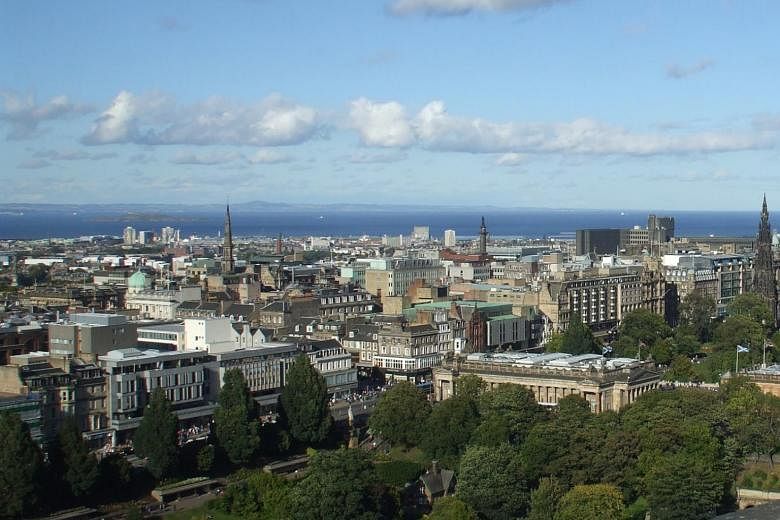LONDON (REUTERS) - Gay and bisexual men in Scotland prosecuted for consensual same-sex activity will receive an automatic pardon under a law which came into effect on Tuesday (Oct 15) aiming to correct a "historic wrong".
The law will cover anyone convicted for same-sex activity which is no longer illegal, ranging from gay sex to kissing or flirting, and those affected can apply to have their former police record 'disregarded' or wiped clean.
Hundreds of men in Scotland were living with criminal records as a result of such discriminatory former laws, estimated LGBT+ rights group Equality Network, which said the convictions had hampered careers and overshadowed men's lives.
"We know of people who were prosecuted as late as the early 1990s for things like kissing their boyfriend in the street,"said director Tim Hopkins, adding that for men prosecuted in earlier decades especially it could have been "devastating".
"A conviction like this could have meant the end of your career, it could have meant losing your friends, it could have meant losing your family, all of those huge impacts," he told the Thomson Reuters Foundation.
"The pardons and the disregard can't undo all of the harm done by these discriminatory laws but they do at least give some comfort to people."
Scotland legalised same-sex activity between men in 1980, though it was not until 2001 that the age of consent was equalised between gay and heterosexual couples.
Thousands of men are thought to have been prosecuted for consensual same-sex contact over the last 150 years, said the Equality Network.
First Minister Nicola Sturgeon offered a public apology to those convicted in such cases for a "historic wrong" as the draft law was first published in 2017, and it was passed unanimously by Scottish parliament the following year.
The new bill will pardon all those affected, including those that are no longer living.
However, they must apply to have their criminal records wiped, a free process that the government and campaigners say it necessary because the offences are so wide-ranging it is not possible for authorities to proactively identify them.
The bill is wider-ranging than a similar law introduced in England and Wales, which only automatically pardons those who are dead and which has also been criticised for not including all of the former offences used to target gay men.
"There is no place for homophobia, ignorance and hatred in modern Scotland," said justice secretary Humza Yousaf in a statement on the eve of the law coming into effect.
"This legislation makes good on the commitments made by the First Minister, who gave an unqualified apology for the now outdated and discriminatory laws, and for the harm they caused to many."

